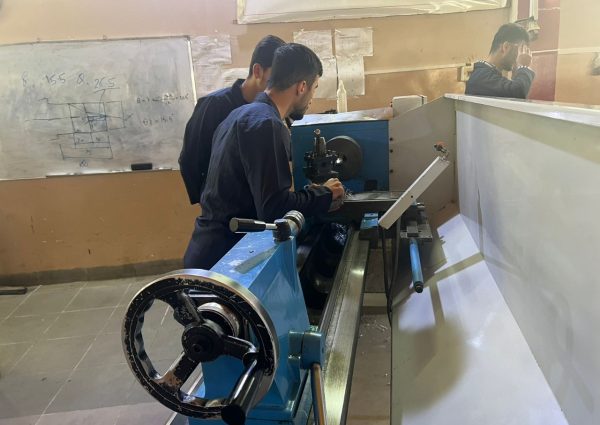Mechanical Engineering Technique
Welcome to the MET Technique Department at Vyar Institute
Here is What to Know
The Mechanical Engineering Technique Department at Vyar Institute is a dynamic academic center dedicated to innovation, precision, and applied engineering excellence. The department provides a stimulating environment that integrates theory, design, and practical experience — preparing students to become highly skilled mechanical engineers capable of meeting the challenges of a rapidly advancing technological world.
Our two-year Mechanical Engineering Diploma Program equips students with fundamental and advanced knowledge in mechanical systems, thermodynamics, manufacturing processes, materials science, fluid mechanics, and computer-aided design (CAD). The curriculum blends scientific theory with real-world technical training, ensuring graduates are well-prepared to contribute to industries such as manufacturing, energy, automotive, and construction.
At Vyar Institute, we prepare students not only to understand machines — but to design, build, and improve them. Our goal is to develop creative engineers who combine innovation, precision, and responsibility to shape the industrial future of Kurdistan and beyond.
Innovation: Encouraging creativity in mechanical design, automation, and sustainable technologies.
Precision: Fostering technical excellence, accuracy, and attention to detail in engineering practice.
Responsibility: Promoting ethical conduct, workplace safety, and environmental awareness.
Excellence: Striving for high academic and professional standards across all engineering disciplines.
Collaboration: Supporting teamwork and effective communication in multidisciplinary environments.
In the final semester, students participate in supervised field training or internships in factories, workshops, or industrial facilities.
Objectives of Field Studies:
Apply theoretical knowledge to real mechanical systems
Gain practical experience in design, manufacturing, and maintenance
Understand industrial processes, tools, and safety standards
Enhance teamwork, communication, and problem-solving skills
Build professional readiness and confidence for future employment
Graduates of the Mechanical Engineering Technique Department at Vyar Institute are qualified for a wide range of careers, including:
Mechanical Design and Drafting
Industrial Maintenance and Operations
HVAC Engineering and Installation
Automotive and Manufacturing Engineering
Quality Control and Inspection
Energy Systems and Power Plants
Project Management and Technical Supervision
Production Planning and Process Engineering
Curriculum Structure
The Mechanical Engineering Technique Program is organized into four semesters, combining classroom theory, laboratory work, and project-based learning to provide students with a solid foundation in mechanical engineering principles and applications.
Engineering Mathematics
Fundamentals of Mechanical Engineering
Technical Drawing and Engineering Graphics
Material Science and Metallurgy
Thermodynamics I
Mechanics of Materials
Manufacturing Processes
Computer-Aided Design (AutoCAD & SolidWorks)
Fluid Mechanics and Hydraulic Systems
Thermodynamics II
Machine Design and Analysis
Electrical and Control Systems for Engineers
Maintenance Engineering and Quality Control
Project Management and Industrial Safety
Research Methods in Mechanical Engineering
Final Project / Internship / Field Training
Short-Term Extension Courses
Duration: 3 months
Content:
2D and 3D modeling
Assembly design and mechanical drawings
Simulation and analysis
Real-world design projects
Duration: 3 months
Content:
Principles of HVAC systems
Load calculation and duct design
System installation and maintenance
Practical lab sessions
Duration: 3 months
Content:
Machine setup and preventive maintenance
Hydraulic and pneumatic systems
Fault diagnosis and repair
Workshop-based practical training
Duration: 3 months
Content:
Renewable and conventional energy systems
Heat transfer and efficiency analysis
Power plant and mechanical energy applications
Project-based learning
